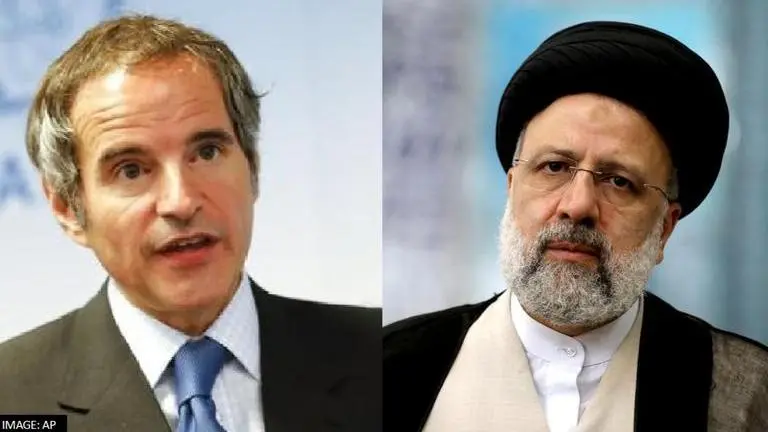Updated 16 December 2021 at 12:12 IST
IAEA chief Rafael Grossi bats for 'adjustments' in 2015 nuclear deal involving Iran
IAEA Chief Rafael Mariano Grossi said that the 2015 nuclear deal needs "adjustments" in 2022 as the world is dealing with a very different Iran today.
- World News
- 3 min read

As talks to revive the Joint Comprehensive Plan of Action (JCPOA) resume in Vienna, the UN nuclear watchdog's chief has recommended that the pact be modified to ensure the agency's capacity to track Iran's nuclear programme. Speaking to The Associated Press (AP), Rafael Mariano Grossi, Director General of the International Atomic Energy Agency (IAEA), said that the 2015 nuclear deal needs "adjustments" in 2022 as the world is dealing with a very different Iran today. "2022 is so different from 2015 that there will have to be adjustments that take into consideration the new realities so our inspectors can inspect whatever the countries agree at the political table," he added.
The United States, the United Kingdom, France, Germany, Russia, China, and the European Union negotiated an agreement with Iran in 2015 that lifted long-standing economic sanctions in exchange for Iran adopting severe limits on the grade and quantity of uranium it could refine. Tehran was allowed just 3.67% purity of uranium-235, with only enough of the radioactive material to run a few nuclear power plants and medical research facilities. However, in 2018, the then-US President withdrew unilaterally accusing Iran of secretly breaking the pact. In addition, the US put "maximum pressure" sanctions on Iran and initiated aggressive military posturing that brought the two countries to the verge of war, Sputnik reported.
Since the failure of the nuclear deal, Iran has begun enriching uranium to 60% purity. The country's enriched uranium stockpile is growing day by day, significantly exceeding the terms of the 2015 nuclear deal, which saw Tehran agree to curtail its nuclear programme in exchange for the relaxation of economic sanctions. Meanwhile, the country also spins ever-more sophisticated centrifuges, which are also prohibited by the agreement. However, last week, Iran's President Ebrahim Raisi stated that if the United States relaxes anti-Iran sanctions, a "good agreement" will be reached in nuclear talks, Xinhua news agency reported.
About JCPOA deal
On July 14, 2015, Iran and the P5+1, along with the European Union, struck a deal on Iran's nuclear programme known as the Joint Comprehensive Plan of Action (JCPOA). The P5+1 refers to China, France, Russia, the United Kingdom, and the United States, as well as Germany, as permanent members of the UN Security Council. The JCPOA is a deal that allows foreign powers to inspect Iranian nuclear facilities in exchange for sanctions relief. However, since June 2021, efforts on reviving the pact and getting Iran back into compliance have been stuck. The talks have reportedly come to a halt as Tel Aviv has gradually breached the terms of the deal and widened the cap on its stockpile of uranium and increased activities above 3.67% allowed under JCPOA.
Advertisement
Image: AP
Published By : Anurag Roushan
Published On: 16 December 2021 at 12:12 IST
